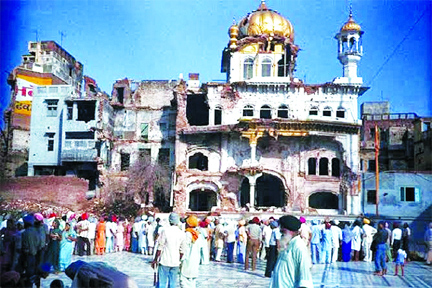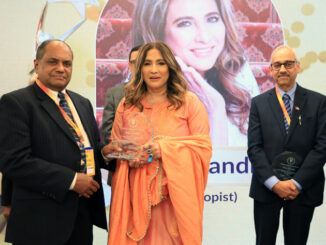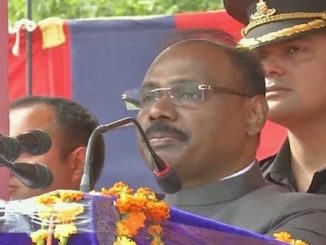
The operation was considered to be a controversial one as it had severe ramifications for many sections. In the long term, the Sikh community became more assertive about their identity and their place in Indian society. However, there was a series of violence across the country against Sikh people immediately after the incident.
In 1985, the Shiromani Gurdwara Parbandhak Committee filed a damages suit for Rs 1000 crore in relation to Operation Blue Star. Operation Blue Star has been the subject of several inquiry commissions and investigations, including the 1984 Misra Commission and the 2005 Nanavati Commission, both of which sought to uncover the events leading up to the operation, deaths, and its aftermath.
The aftermath of operation Blue Star also saw an increase in militant activities as well as violence in Punjab, leading to a decade-long insurgency followed by a brutal crackdown by the Indian security forces.
The operation sparked widespread protests and anger among the Sikh community in India as well as abroad, who viewed it as an attack on their religious and cultural identity.
Prime Minister Indira Gandhi who gave a nod to Operation Blue Star was assassinated by her Sikh bodyguards later in the year. The 1984 Sikh Riots broke out, which lasted for 3 days and led to a number of deaths which is estimated by various independent sources at around 8,000-16,000.
In 1986, the Chief of Army Staff at the time of the operation- General AS Vaidya was assassinated by Sikh militants in revenge. The bombing of Air India Flight 182 from Canada to Delhi in 1985 is believed to have been another act of revenge for Operation Blue Star.
Many Sikh army men in the Indian Army mutinied because of the operation. Many Sikhs resigned from administrative positions in the government.
On July 24, 1985, the then-Indian Prime Minister Rajiv Gandhi and Punjabi Akali leader Harchand Singh Longowal signed the Rajiv–Longowal Accord or simply, the Punjab accord.
Rajiv- Longowal Accord
PM Rajiv Gandhi initiated negotiations with the Akali leaders in the belief that a settlement with them would provide a lasting solution to the Punjab problem. Finally, in Aug 1985, Rajiv Gandhi and Longowal signed the Rajiv-Longowal, or commonly the Punjab Accord.
Under the agreement, it was agreed that Chandigarh would be transferred to Punjab.
A commission was sought to be constituted which would then determine what Hindi-speaking territories would be transferred from Punjab to Haryana.
An independent tribunal was to be set up which would adjudicate the river water dispute. Elections for the state assembly as well as the national parliament were to be held in September 1985. It stated that merit will remain the sole criterion for enlistment in the Indian army and except for the Sikh regiments, it would be open for all sections of the society.
Compensation was sought to be provided to the families of the innocent persons killed in agitation or any related action after 1st August 1982.
Jurisdiction of the Rangnath Mishra Commission enquiring into the 1984 Delhi riots was extended to Bokaro and Kanpur.
The part of the Anandpur Sahib Resolution dealing with the Centre and State relations will be referred to the Sarkaria commission. Central Government was to take steps to promote the Punjabi language. An All-India Gurdwara Act was sought for structured governance of the Sikh shrines in India.





Be the first to comment